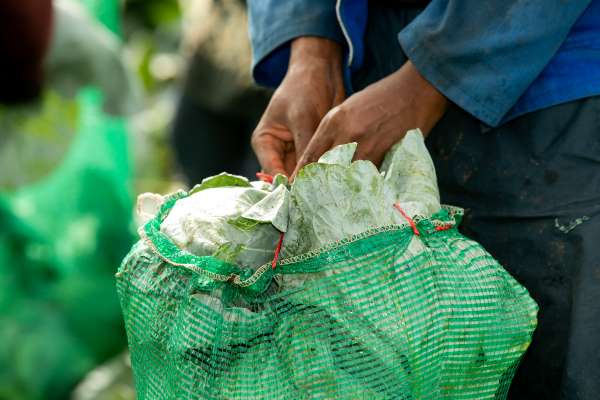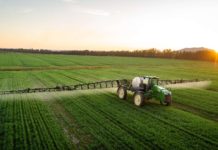By : Nico Groenewald, Head of Agribusiness, Standard Bank
The Covid-19 pandemic has exacerbated South Africa’s social challenges, mostly seen throughout the country by dramatic increases in hunger and malnutrition. The need for food relief is now greater than ever, with over 12 million South Africans unsure of where their next meal will come from.
At the same time, however, current estimates show that about 10 million tonnes or 30% of local agricultural production in South Africa is wasted each year. This is equivalent to an estimated R60 billion annually, or 2% of GDP.
Farmers are well aware of the dire need for food relief but feel unable to meet it without a clear mechanism to manage requests for donations and an efficient, quick, and transparent process to donate their produce.
Furthermore, the pandemic environment has significantly altered agricultural supply and demand. Through the closure of restaurants, school feeding schemes, farmers’ and fresh produce markets and reduced grocery shopping, the demand for fresh produce and other perishables, during levels 3-5 of lockdown, significantly shifted.
Emerging and smallholder farmers experienced disruptions to their supply chains. Farmers have, at times, been sitting with excess stock, and without buyers, this stock has been dumped or destroyed at cost to the farmer.
Even in level 1, we will feel the effects for a while to come: with an additional 2.2 million people unemployed, travel still to return to normal levels, suppressed usage of the hospitality industry and many other contributing factors.
These challenges are by no means unique to SA and are being experienced by emerging markets across the continent. The pandemic environment has also pushed millions of Africans into poverty as incomes vanished, creating an overwhelming need for feed relief an assistance.
Agribusinesses in Africa still face various challenges – of which access to market is a significant one. If one can create easy access to market, especially for smaller farmers, the risk of financial failure is reduced, and their economic activity can contribute to uplifting communities through employment.
While some buyers of produce may have disappeared, demand has not died. It has simply shifted, and supply chains have not been able to adapt fast enough. This has created an opportunity to help suppliers adapt by matching their excess supply to a different source of demand – the relief market.
Food insecurity for many was accentuated by Covid-19, but existed prior to the crisis, and given the dynamics of the economic reality, is likely to continue in some shape and form in the future.
The rise of the “platform economy” is one recent development that offers a way to tackle food relief and recreate markets for farmers in the post-Covid-19 recovery period. Embodied by the likes of Uber and Amazon, the platform model is driving efficiencies across various industries, including agriculture, and improving the lives of various stakeholders. It also has immense potential to deliver social impact in the current environment and beyond.
Standard Bank’s OneFarm Share, for instance, is safeguarding the sustainability of farmers while also contributing to food security. Matching the tremendous needs of organisations that provide food relief with farmers of all sizes with excess supply, OneFarm Share has the potential to contribute to driving sustainability of the agricultural sector and reducing hunger and malnutrition.
The OneFarm Share platform gives farmers and food producers access to a marketplace that coordinates the procurement and distribution of food to charities and their beneficiary organisations.
Reducing poverty is arguably Africa’s greatest developmental challenge, and growing the agricultural sector is key to achieving a transformational impact. The continent boasts significant untapped agricultural potential that can solve for ever-increasing global food requirements.
In order to partake successfully in a global arena and to address important issues such as food security and limiting waste, it is critical that the full agricultural value chain is developed. This can effectively unlock processing, value add, and trade of products in favour of the continent.
It is impossible to overcome this alone. An ecosystem involving multiple players will ultimately close the gap. This is what motivated Standard Bank to pilot the OneFarm platform project in Uganda in 2019. The initiative brings together multiple players from within financial services and beyond to provide services to and connect players within the agricultural value chain.
It is our vision as Africa’s largest financial services organisation to become leaders in providing and creating innovative solutions that help to grow key sectors on the continent and solve for key development issues such as poverty reduction.
We will continue to find new ways to support our clients and create a positive meaningful impact through innovative solutions. OneFarm Share, for example, supports the assistance of aiding the food security crisis in South Africa whilst aligning to Standard Bank’s positioning of doing business the right way.








